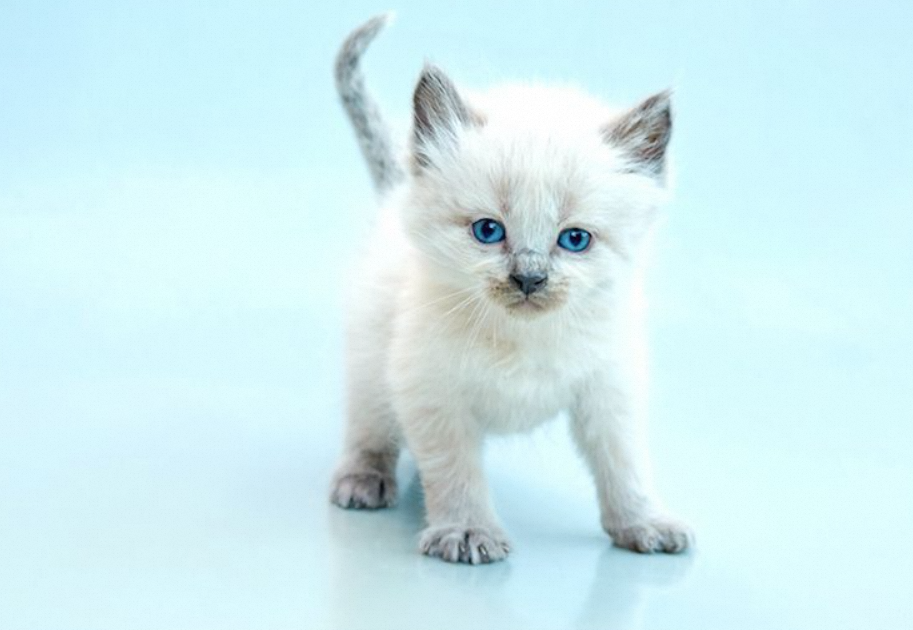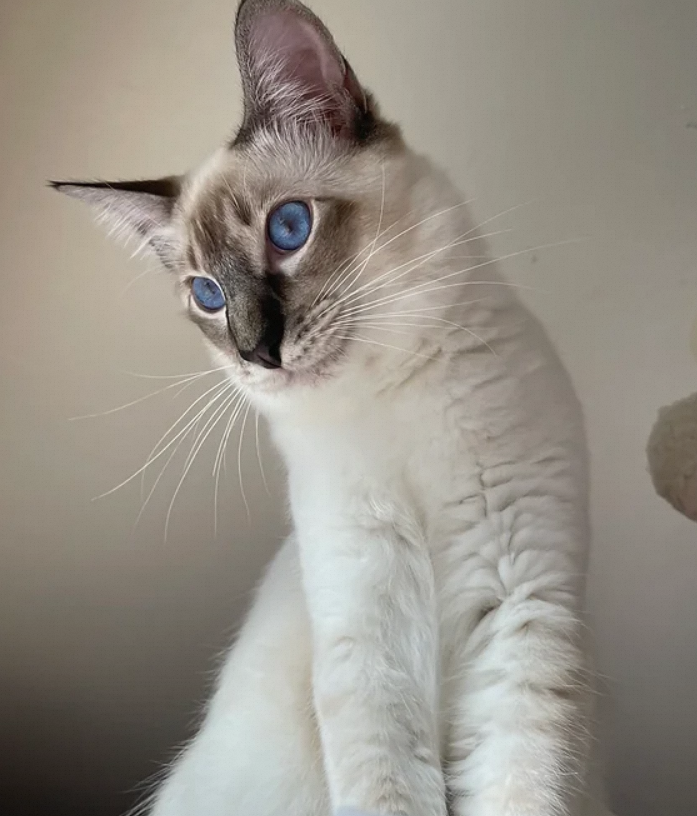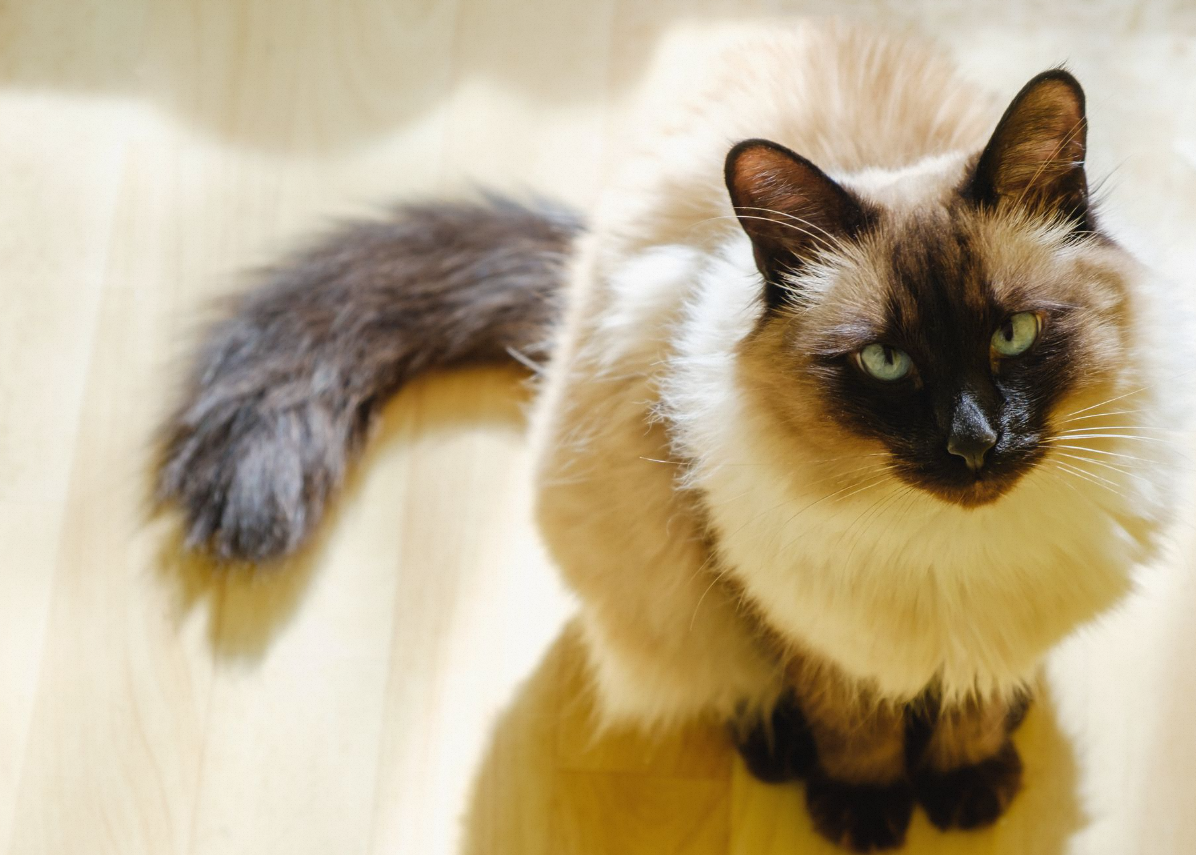Hypoallergenic cats appeal to individuals with allergies who want to own a kitten companion without triggering allergic reactions. People believe that these cats can produce fewer allergens because their coats can minimize the spread of allergens. However, are Balinese cats truly hypoallergenic? Let’s research this issue and reveal the truth behind the hypoallergenic claims about Balinese cats.
In This Article
Understanding Allergies and Cat Allergens
Allergies will occur when the immune system reacts to certain substances known as allergens. It seems like they were harmful. Cat dander is one of green allergens that affects many people and is made from tiny flakes of skin shed by cats. Allergen Fel d 1 is a protein in cat saliva, skin and urine that might be contained in cat dander.
When someone with cat allergies comes into contact with cat dander or Fel d 1, a allergic reaction will occur. This can result in adverse symptoms such as sneezing, runny nose and watery eyes, and even asthma attack in more severe cases. Remarkably, proteins found in the cat’s saliva and skin may cause allergic reactions rather than cat’s fur itself. When the cat grooms itself or sheds fur, the proteins would become airborne.
Clarifying Misconceptions about Hypoallergenic Cats
 Some people think that hypoallergenic cats aren’t found be source of allergies. It is important to clarify these misconceptions that we can understand the nature of hypoallergenic cats clearly.
Some people think that hypoallergenic cats aren’t found be source of allergies. It is important to clarify these misconceptions that we can understand the nature of hypoallergenic cats clearly.
Complete Absence of Allergens: One common misconception is that hypoallergenic cats do not produce any allergens. However, this is not true. Hypoallergenic cats typically produce fewer allergens or minimize the spread of allergens, but they are still able to result in allergic reactions to sensitive individuals. Allergens, such as the protein Fel d 1, are still present in the saliva, skin, and urine of hypoallergenic cats.
Universal Hypoallergenic Qualities: Another misconception is that all hypoallergenic cats will have the same effect on allergies for everyone. Actually, each individual’s sensitivity and response to allergens are very different. While some people may suffer slight allergy symptoms or no symptoms at all around hypoallergenic cats, others may still have severe allergic reactions. It is crucial to know that hypoallergenic qualities may vary among individuals.
One Size Fits All: Not all hypoallergenic cat breeds and individuals within a breed will produce the same allergen production. Cats’ hypoallergenic qualities can be influenced by factors such as genetics, coat type and individual variations. It is important for you to spend time to assess personal reactions and determine compatibility before making a decision.
 By clarifying these misconceptions, it becomes evident that hypoallergenic cats are not completely allergen-free breeds and that the level of hypoallergenic qualities can vary among individuals. It’s essential for individuals with allergies to do personal evaluations before keeping a hypoallergenic cat.
By clarifying these misconceptions, it becomes evident that hypoallergenic cats are not completely allergen-free breeds and that the level of hypoallergenic qualities can vary among individuals. It’s essential for individuals with allergies to do personal evaluations before keeping a hypoallergenic cat.
Introducing the Hypoallergenic Balinese Cats
The Balinese cat breed are named as the “long-haired Siamese”. It is a graceful feline and its silky and medium-length coat is famous. While the name may imply a connection with Indonesian island of Bali, its origins should be traced back to the United States.
Like short-haired Siamese relatives, Balinese cats have the same physical characteristics such as striking blue almond-shaped eyes, slender bodies and triangular heads. While the beautiful and flowing coat that are unique to Balinese cats sets them apart.
 The reason why Balinese cats are hypoallergenic is that they can produce fewer allergens and minimize the spread of allergens. They have single coat which lacks an undercoat that the shedding is smaller. As a result, loose hairs become fewer and a lower quantity of allergens being released into the environment.
The reason why Balinese cats are hypoallergenic is that they can produce fewer allergens and minimize the spread of allergens. They have single coat which lacks an undercoat that the shedding is smaller. As a result, loose hairs become fewer and a lower quantity of allergens being released into the environment.
Compared to other feline friends, people with allergies may suffer milder symptoms when they are around Balinese cats. However, we should know that no cat breed is completely allergen-free and allergic reactions will still occur in sensitive individuals.
Importance of Allergy Management Techniques for Balinese Cats
While Balinese cats are hypoallergenic, you should know that hypoallergenic qualities may vary among individuals. In order to create a safe environment for allergy sufferer, allergy management techniques are necessary.
Regular Grooming
Grooming your Balinese cat regularly is helpful for you to remove loose hair and dander. We suggest you should brush cat’s coat at least once or twice a week to make allergens smaller and keep their fur healthy. Please use a high-quality cat brush or a de-shedding tool to make shedding can be minimized effectively.
or twice a week to make allergens smaller and keep their fur healthy. Please use a high-quality cat brush or a de-shedding tool to make shedding can be minimized effectively.
Clean Living Environment
It’s essential to keep a clean and allergen-free living space for allergy sufferers. Try to use a vacuum cleaner equipped with a HEPA filter that allergens can be removed from carpets and rugs easily. We also recommend you to wipe down the surface of furniture with damp cloths that allergens will be further minimized.
Air Quality Control
Improving indoor air quality is crucial for you to do the management of allergy. Please use high-efficiency air purifiers with HEPA filters to remove allergens in air. Additionally, using mattresses and bedding are made from hypoallergenic materials and regularly washing them in hot water can help reduce the accumulation of allergen.
Minimizing Allergen Exposure
Please create designated cat-free zones at home that you can provide allergy sufferers with allergen-free spaces. Remember that wash your hands after handling Balinese cat. It’s helpful to reduce the exposure with allergens during sleeping by using allergen-proof covers on pillows and mattresses.
 Personal Sensitivity and Allergist Consultation
Personal Sensitivity and Allergist Consultation
Each individual’s sensitivity and response to allergens are very different. If you prepare to keep a Balinese cat, please assess your allergy reactions in advance. You can consult with allergists to achieve personalized guidance and advice.
In conclusion, the hypoallergenic qualities of Balinese cats can vary among individuals. While they are often regarded as being hypoallergenic, it is crucial for us to learn that no cat breed is completely allergen-free. Balinese cats may be a suitable option for individuals with mild allergies, but it is essential to evaluate your personal allergen reactions. With proper allergy management and precautions, individuals with allergies may be able to enjoy the companionship from Balinese cats.
